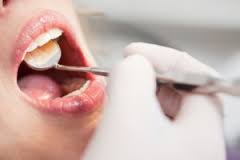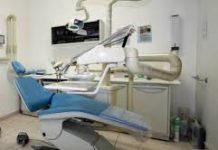Dental cement.
Tooth cement, or dental cement, is a particular kind of glue used in dentistry and orthodontics. Tooth cement can be made up of different components according to the specific use it is destined, but it is always composed by a mix of powder and liquid together. Dental cement is hard, to attach prothesis or appliances to the teeth, but is also brittle, as it can be remove and replace with a new cement.
Usually a dental cement is applied to fix a crown to the abutment, or to attach braces to teeth; it can employed to protect the pulp or in case of inlays or onlays treatments.
Dental adhesive. The materials.
Tooth cement can be composed by different materials, so there are three kind of cement: water-based acid-base cements, as zinc phosphate or glass ionomer (GI); resin-based, as acrylate or methacrylate resin cements; non-aqueous or oil bases acid-base cements: as zinc oxide eugenol and non-eugenol zinc oxide.
The latter is usually utilized in case of a temporary crown, that is attached with a cement that’s fairly easy to break; it is made of zinc oxide powder, eugenol and olive oil.
Other types of dental cement have different characteristics and the dentist chooses the most suitable case by case.
Dental resin cement. Its work.
Moreover dental cement work in different ways: some of them create a resistance and retention when compressed, and some also form a chemical bond; these kind of chemically bonding cements provide an additional strength, but they’re not always useful, since a crown that need to be replaced or repaired may be more difficult to remove. Chemically bonded cements may be used for example in patients who grind their teeth.
Zinc phosphate, glass ionomer, resin-modified glass ionomer (RMGI) and resin cements are kind of dental glues that create a semi-permanent seal; GI cement chemically bonds to stainless steel and other metals, but doesn’t work with porcelain, and it is slightly soluble in oral fluids. RMGI cement it is completely insoluble, but it can’t be used with all-ceramic crowns because they’re too fragile.
Tooth cement. Its properties.
Usually dental cements have some properties to avoid further cavities, don’t irritate pulp or gingiva, be resistant to saliva or other oral fluids, form a strong bond with enamel and dentin, have good aesthetics and good thermal and chemical resistance, but, most of all in case of crowns, a proper oral hygiene is very much important to guarantee the longevity of these devices.





